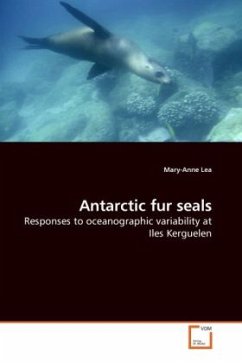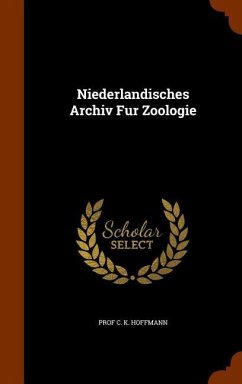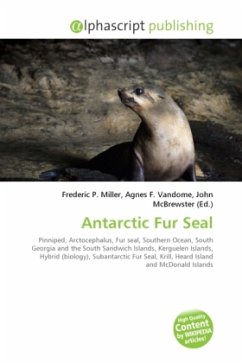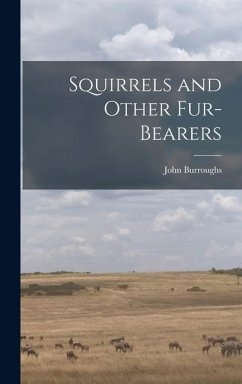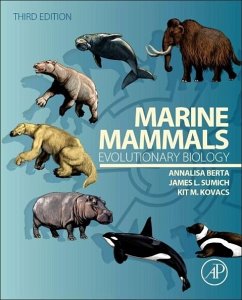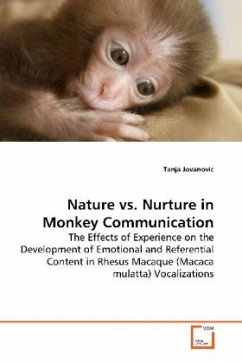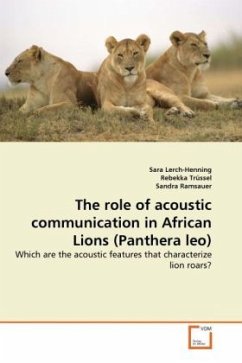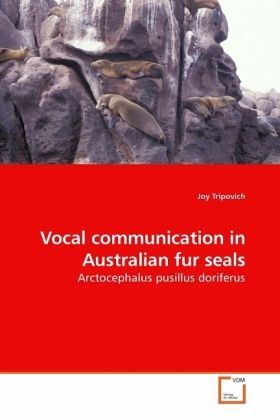
Vocal communication in Australian fur seals
Arctocephalus pusillus doriferus
Versandkostenfrei!
Versandfertig in 6-10 Tagen
45,99 €
inkl. MwSt.

PAYBACK Punkte
23 °P sammeln!
The acoustic communication of Australian fur seals was studied on Kanowna Island, Australia. The vocal repertoire and behavioural context of calls produced by males, females, yearlings and pups was reported. Seals were found to have unique attributes in their calls supporting mother-pup and male-male vocal recognition. Playback studies demonstrated that territorial male Australian fur seals respond significantly more to the calls of strangers than to those of neighbours, supporting male vocal recognition. The study also conducted experimental manipulations to determine the importance of call f...
The acoustic communication of Australian fur seals was studied on Kanowna Island, Australia. The vocal repertoire and behavioural context of calls produced by males, females, yearlings and pups was reported. Seals were found to have unique attributes in their calls supporting mother-pup and male-male vocal recognition. Playback studies demonstrated that territorial male Australian fur seals respond significantly more to the calls of strangers than to those of neighbours, supporting male vocal recognition. The study also conducted experimental manipulations to determine the importance of call features in vocal recognition. The present study examined the life history characteristics of otariids to determine the factors likely to influence and shape its vocal behaviour. Preliminary results indicate that female density, body size and the breeding environment all influence the vocal behaviour of otariids. Understanding these interactions will provide insight into how vocal recognitionand communication have evolved in different pinniped species



